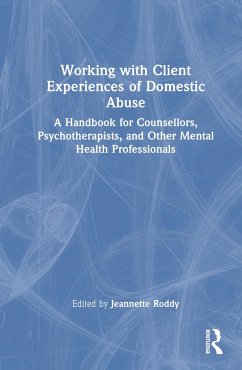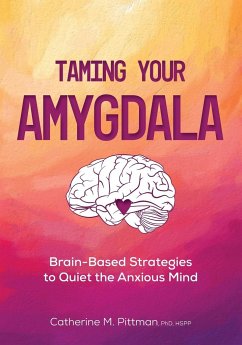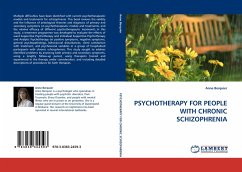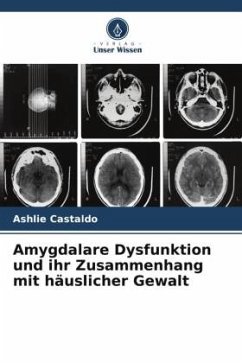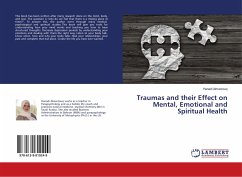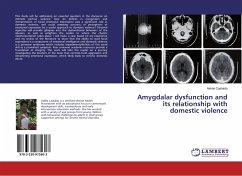
Amygdalar dysfunction and its relationship with domestic violence
Versandkostenfrei!
Versandfertig in 6-10 Tagen
24,99 €
inkl. MwSt.

PAYBACK Punkte
12 °P sammeln!
This study will be addressing an essential question in the discourse on intimate partner violence: how do deficits in recognition and interpretation of facial emotional expressions play a significant role in domestic violence, and could assessing accuracy of perceptions of emotional expression be a useful approach to domestic violence? Personal vignettes will provide glimpses into the dysfunctional behaviors of the abusers, as well as enlighten the reader to where the chaotic misinterpretation takes place. I will make a case based on my experience and my review of the literature to show that t...
This study will be addressing an essential question in the discourse on intimate partner violence: how do deficits in recognition and interpretation of facial emotional expressions play a significant role in domestic violence, and could assessing accuracy of perceptions of emotional expression be a useful approach to domestic violence? Personal vignettes will provide glimpses into the dysfunctional behaviors of the abusers, as well as enlighten the reader to where the chaotic misinterpretation takes place. I will make a case based on my experience and my review of the literature to show that the ability to read facial expressions is a component of emotional intelligence and domestic violence is a pervasive syndrome which includes impediments/deficits of this social skill as a prominent symptom. Peer reviewed academic resources provide a foundation of integrity. This work will take the reader on a journey investigating the location of the brain that controls both aggression and deciphering emotional expression, which likely leads to chronic domestic abuse.




